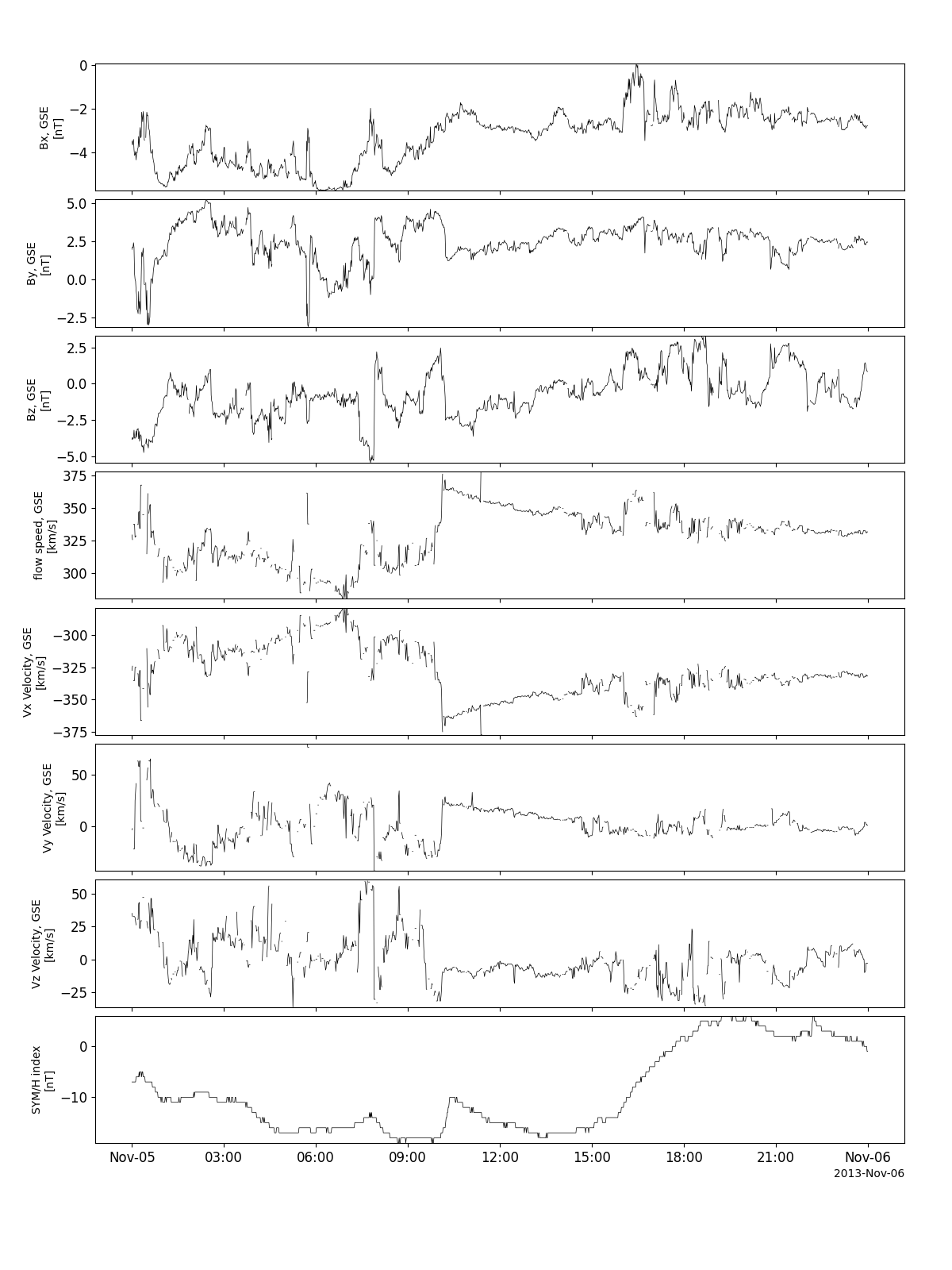OMNI data
The routines in this module can be used to load data from the OMNI data mission.
- pyspedas.omni.data(trange=['2013-11-5', '2013-11-6'], datatype='1min', level='hro2', suffix='', get_support_data=False, get_ignore_data=False, varformat=None, varnames=[], downloadonly=False, notplot=False, no_update=False, time_clip=True)
This function loads OMNI (Combined 1AU IP Data; Magnetic and Solar Indices) data
- Parameters
trange (
listofstr) – time range of interest [starttime, endtime] with the format ‘YYYY-MM-DD’,’YYYY-MM-DD’] or to specify more or less than a day [‘YYYY-MM-DD/hh:mm:ss’,’YYYY-MM-DD/hh:mm:ss’]level (
str) – Data level; valid options: hro, hro2datatype (
str) – Data type; valid options: 1min, 5min, hourly (1 hour)suffix (
str) – The tplot variable names will be given this suffix. By default, no suffix is added.get_support_data (
bool) – Data with an attribute “VAR_TYPE” with a value of “support_data” will be loaded into tplot. By default, only loads in data with a “VAR_TYPE” attribute of “data”.varformat (
str) – The file variable formats to load into tplot. Wildcard character “*” is accepted. By default, all variables are loaded in.varnames (
listofstr) – List of variable names to load (if not specified, all data variables are loaded)downloadonly (
bool) – Set this flag to download the CDF files, but not load them into tplot variablesnotplot (
bool) – Return the data in hash tables instead of creating tplot variablesno_update (
bool) – If set, only load data from your local cachetime_clip (
bool) – Time clip the variables to exactly the range specified in the trange keyword
- Return type
Listoftplot variables created.
Example
import pyspedas
from pytplot import tplot
omni_vars = pyspedas.omni.data(trange=['2013-11-5', '2013-11-6'])
tplot(['BX_GSE', 'BY_GSE', 'BZ_GSE', 'flow_speed', 'Vx', 'Vy', 'Vz', 'SYM_H'])
